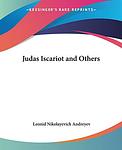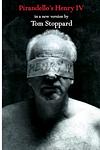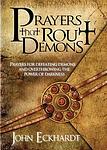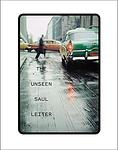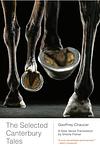The Greatest Russian, Italian "Drama" Books of All Time
Click to learn how this list is calculated.
This list represents a comprehensive and trusted collection of the greatest books. Developed through a specialized algorithm, it brings together 305 'best of' book lists to form a definitive guide to the world's most acclaimed books. For those interested in how these books are chosen, additional details can be found on the rankings page.
Genres
Drama is a genre of literature that typically deals with serious and emotional themes, often exploring the complexities of human relationships and the struggles individuals face in their lives. These books often feature intense character development and intricate plotlines, delving into the depths of human experience and the challenges of navigating the world around us. From family dramas to political intrigue, the drama genre encompasses a wide range of stories that aim to captivate readers with their raw and powerful storytelling.
Countries
Date Range
Reading Statistics
Click the button below to see how many of these books you've read!
Download
If you're interested in downloading this list as a CSV file for use in a spreadsheet application, you can easily do so by clicking the button below. Please note that to ensure a manageable file size and faster download, the CSV will include details for only the first 500 books.
Download-
26. The Zone by Sergei Dovlatov
"The Zone" is a semi-autobiographical novel that follows the life of a writer who is confined to a Soviet labor camp. Through a series of vignettes, the protagonist reflects on his experiences in the camp, the absurdities of the Soviet system, and the struggles of maintaining his identity and integrity in the face of oppression. With dark humor and sharp observations, the book offers a poignant and satirical portrayal of life in the Soviet Union.
The 4071st Greatest Book of All Time -
27. Farewell To Matyora by Valentin Rasputin
The book is a poignant exploration of the tension between progress and tradition, set in a small Siberian village that is doomed to be submerged by the construction of a hydroelectric dam. As the government mandates the relocation of the village's inhabitants, the narrative delves into the lives of the villagers who are grappling with the loss of their ancestral home and way of life. The story is a meditation on the cost of modernization, the deep connection between people and their land, and the inevitable passing of time that brings change, often at the expense of cultural heritage and personal identity. Through the villagers' resistance and sorrow, the novel examines themes of environmental impact, the clash of ideologies, and the resilience of the human spirit in the face of displacement.
The 4083rd Greatest Book of All Time -
28. Creatures that Once Were Men by Maxim Gorky
"Creatures that Once Were Men" is a collection of short stories that depict the harsh realities of life in the lower classes of Russian society. The stories are set in a night refuge for the homeless, where the characters, despite their grim circumstances, strive to maintain their humanity. Through their struggles, the author explores themes of poverty, addiction, despair, and the human spirit's resilience.
The 4151st Greatest Book of All Time -
29. Judas Iscariot by Leonid Andreyev
The book presents a reimagining of the character of Judas Iscariot, traditionally known as the betrayer of Jesus Christ. It delves into the psychological and moral complexities of Judas, exploring his inner turmoil, motivations, and the factors that may have led him to commit the act of betrayal. The narrative seeks to humanize Judas, offering a nuanced perspective that challenges the conventional vilification he has received throughout history. Through this character study, the book examines themes of guilt, redemption, and the nature of evil, ultimately raising questions about free will and the role of individuals within the grander schemes of destiny and divine plans.
The 4672nd Greatest Book of All Time -
30. The Time: Night by Ludmila Petrushevskaya
The book is a stark portrayal of the struggles faced by a multi-generational family living in the cramped quarters of a Moscow apartment during the twilight years of the Soviet Union. The narrative is driven by the matriarch, a poet who is both resilient and weary, as she navigates the complexities of caring for her mentally unstable daughter and her neglected grandson. The story delves deep into themes of maternal sacrifice, poverty, and the relentless passage of time, painting a grim picture of domestic life and the burdens of womanhood in a society that is as unforgiving as it is oppressive.
The 5496th Greatest Book of All Time -
31. Novecento by Alessandro Baricco
The book is a poignant monologue that tells the story of a gifted pianist born on a transatlantic liner in the early 20th century. Abandoned at birth, he is named after the year of his birth and grows up on the ship, never setting foot on land. His extraordinary talent for piano captivates everyone who hears him play, and his music becomes legendary among travelers and crew alike. The narrative, recounted by a fellow musician and friend, explores themes of belonging, the meaning of home, and the transcendent power of music to connect people across the boundaries of time and space.
The 6652nd Greatest Book of All Time -
32. Henry Iv by Luigi Pirandello
In this novel, the protagonist is a man who, after an accident during a historical pageant, comes to believe himself to be the medieval German emperor Henry IV. For twenty years, he lives in a villa with attendants who indulge his delusion. The story delves into themes of madness, reality, and illusion as characters from his past attempt to cure him, leading to a complex examination of the nature of sanity and the role that personal mythologies play in our lives. As the line between the protagonist's delusion and the reality of those around him blurs, the narrative raises profound questions about the nature of identity and the masks people wear in society.
The 6742nd Greatest Book of All Time -
33. Accidental Death Of An Anarchist by Dario Fo
In this satirical farce, an eccentric and quick-witted man, referred to as the Maniac, infiltrates a police station where an anarchist railway worker's death is being investigated. The authorities claim the anarchist died by suicide, having jumped out of a window during an interrogation. However, the Maniac cleverly impersonates various officials, manipulates the policemen, and exposes the absurdities and contradictions in their stories, suggesting that the anarchist's death was not an accident but a cover-up of police brutality. The play uses sharp humor and slapstick to critique corruption and the misuse of power within the establishment, ultimately questioning the integrity of the police and the justice system.
The 6939th Greatest Book of All Time -
34. The Servant Of Two Masters by Carlo Goldoni
The play is a classic Italian comedy that revolves around the clever and resourceful Truffaldino, who seeks to serve two different masters simultaneously in the hope of doubling his income. The ensuing plot is a whirlwind of mistaken identities, love triangles, and comedic confusions. As Truffaldino scrambles to keep his dual employment a secret, the characters are entangled in a series of humorous situations involving love-struck young lovers, a feisty soubrette, and a pair of stern fathers. The play culminates in a series of revelations and reconciliations that restore social order and conclude with festive celebrations.
The 6960th Greatest Book of All Time -
35. The Power Of Darkness by Leo Tolstoy
"The Power of Darkness" is a harrowing drama that delves into the depths of human depravity and the struggle for redemption. Set in rural Russia, the narrative follows a peasant named Nikita, who, driven by lust and greed, becomes entangled in a web of tragic events, including adultery, infanticide, and deception. As the consequences of his actions spiral out of control, the story exposes the stark realities of the moral decay and the social ills of the time. The play ultimately confronts the audience with the profound impact of sin and the possibility of forgiveness, posing challenging questions about the nature of evil and the potential for moral transformation.
The 6964th Greatest Book of All Time -
36. A Month In The Country by Ivan Turgenev
"A Month in the Country" by Ivan Turgenev is a classic Russian play that explores themes of unrequited love, the complexities of the human heart, and the social dynamics of 19th-century Russian country life. The story revolves around Natalya Petrovna, a married woman who falls in love with Aleksei Belyaev, a young tutor hired to educate her son. This illicit affection stirs a tumult of emotions and rivalries within her household, as her ward, Vera, also becomes infatuated with Aleksei, and Natalya's longtime friend, Rakitin, struggles with his unspoken love for her. The play delicately unveils the characters' internal conflicts and desires, culminating in a poignant commentary on the nature of love and the inevitability of change.
The 7168th Greatest Book of All Time -
37. Saul by Vittorio Alfieri
"Saul" is a dramatic tragedy that unfolds in ancient Israel, focusing on the eponymous King Saul, who is tormented by jealousy and an obsession with the young David, the future king. The play delves into themes of power, madness, and divine will, as Saul's mental state deteriorates and his kingdom falls into chaos. His tragic flaw leads him to confrontations with his own family, his people, and ultimately, his downfall, as he grapples with the loss of God's favor and the rise of his successor. The narrative is a powerful exploration of human weakness and the destructive potential of unchecked emotions.
The 7168th Greatest Book of All Time -
38. The Mandrake by Niccolo Machiavelli
"The Mandrake" is a satirical play that explores themes of corruption, deceit, and the manipulation of social norms. Set in Renaissance Italy, the story revolves around a young man who, desperate to win the affections of a beautiful but married woman, concocts a complex scheme involving a love potion derived from the mandrake root. With the help of a cunning rascal and a corrupt priest, the plan unfolds with a series of deceptions and moral compromises, ultimately questioning the true nature of virtue and vice in a society rife with hypocrisy. The play delves into the darker aspects of human behavior, using wit and humor to expose the lengths to which individuals will go to satisfy their desires.
The 7168th Greatest Book of All Time -
39. The Major Plays by Anton Chekhov
This collection brings together the most significant works of a master playwright whose stories unfold against the backdrop of Russian society at the turn of the 20th century. The plays are rich with complex characters, nuanced relationships, and social commentary, exploring themes of unrequited love, dreams versus reality, the passage of time, and the search for meaning in everyday life. The playwright's signature blend of tragedy and comedy, combined with a subtle use of symbolism and a focus on character development, has cemented these works as timeless explorations of human nature and the societal pressures that shape our lives.
The 7168th Greatest Book of All Time -
40. Naked Masks by Luigi Pirandello
"Naked Masks" is a collection of five plays that delve into the complexities of human identity and the conflict between one's inner self and the roles imposed by society. The plays explore themes of madness, illusion, and existential uncertainty, often through characters who are caught in the tension between appearance and reality. The author uses the metaphor of the mask to represent the personas that individuals adopt in public, while questioning the nature of truth and the possibility of truly understanding oneself or others. The plays challenge audiences to consider the fluidity of identity and the performative aspects of everyday life.
The 7168th Greatest Book of All Time -
41. Women Of Messina by Elio Vittorini
The novel explores the lives of a group of Sicilian villagers who return to their hometown after it was destroyed during World War II. As they rebuild their community amidst the ruins, they form a utopian society based on principles of equality and cooperation. However, their idealism is tested by internal conflicts and external pressures, including the influence of a mysterious woman who arrives in their midst. The narrative delves into themes of social reconstruction, the power of human solidarity, and the challenges of creating a new society while grappling with the scars of the past.
The 7168th Greatest Book of All Time -
42. Selected Tales by Leonid Andreyev
"Selected Tales" is a compilation of short stories that delve into the depths of human emotion and existential despair. The collection showcases the author's fascination with the darker aspects of the human psyche, exploring themes such as death, madness, and the search for meaning in a seemingly indifferent universe. Through a blend of realism and symbolism, the stories present a poignant commentary on the human condition, often highlighting the tragic ironies and complexities of life. The author's vivid prose and ability to evoke intense atmospheres make this anthology a profound reflection on the struggles of the soul and the moral dilemmas faced by individuals in times of crisis.
The 7168th Greatest Book of All Time -
43. The Storm by Aleksandr Ostrovsky
"The Storm" is a classic Russian drama set in a small provincial town, where the central character, a young woman trapped in a stifling and oppressive marriage, struggles against the rigid social norms and expectations of her community. The play explores themes of personal freedom, the clash between individual desires and societal conventions, and the destructive power of nature, both in the literal sense with an impending storm and metaphorically in the emotional turmoil experienced by the characters. As the narrative unfolds, the protagonist's quest for love and happiness leads to tragic consequences, reflecting the broader conflict between progressive ideas and traditional values in 19th-century Russia.
The 7168th Greatest Book of All Time -
44. On The Eve by Ivan Turgenev
The novel is a poignant exploration of the lives and loves of a group of young Russian intellectuals on the brink of societal change. Set in the 1850s, it centers around Elena, a passionate and idealistic young woman, and her relationships with the men who vie for her affection, including a nihilistic revolutionary and a traditional sculptor. As the characters navigate personal desires and political ideals, the story delves into themes of love, disillusionment, and the search for identity against the backdrop of a Russia teetering on the edge of modernization and reform. The narrative captures the spirit of an era filled with hope and uncertainty, reflecting the broader tensions of a country facing the dawn of a new age.
The 7168th Greatest Book of All Time -
45. Zuleikha by Guzel Yakhina
"Zuleikha" is a captivating historical novel set in 1930s Soviet Union, following the life of Zuleikha, a Tatar woman who is forcefully taken from her home and exiled to Siberia. As she struggles to adapt to the harsh conditions of the remote village, Zuleikha finds solace in her resilience and the unexpected connections she forms with her fellow exiles. Through her journey of survival, love, and self-discovery, Zuleikha's story beautifully explores themes of identity, freedom, and the indomitable human spirit.
The 8223rd Greatest Book of All Time -
46. Born Twice by Giuseppe Pontiggia
The novel centers around a father's profound journey as he navigates the complexities of raising a son with cerebral palsy. The narrative delves into the emotional and social challenges they face, exploring themes of acceptance, resilience, and the redefinition of fatherhood. Through his son's condition, the father confronts his own vulnerabilities and the societal prejudices against disability, ultimately experiencing a profound transformation that leads him to a deeper understanding of love, identity, and the human experience.
The 8305th Greatest Book of All Time -
47. La Triologia Della Villegiatura by Carlo Goldoni
"La Trilogia della Villegiatura" is a series of three comedies that satirize the habits and foibles of the middle class in 18th-century Italy as they engage in the fashionable practice of taking a holiday in the countryside. The trilogy follows a group of friends and their families as they navigate the social and romantic complexities of their vacation. Throughout the plays, the characters deal with issues of love, marriage, and social status, revealing the pretentiousness and shallowness of their behavior. The author uses wit and humor to critique the obsession with appearances and the frivolity of his contemporaries, while also exploring deeper themes of human nature and relationships.
The 10975th Greatest Book of All Time -
48. The Forest by Alexander Ostrovsky
"The Forest" is a classic Russian play that intertwines themes of love, greed, and the generational clash between old and new values. Set in a rural 19th-century Russian village, the story revolves around a wealthy, miserly widow who owns a large estate and her nephew, a struggling but idealistic playwright. When a pair of itinerant actors arrives in the village, their presence sets off a series of events that expose the hypocrisy and corruption of the rural gentry and merchant class. Through a blend of comedy and drama, the play critiques the societal norms of the time, revealing the characters' true natures and exploring the transformative power of art and integrity.
The 10979th Greatest Book of All Time -
49. The Suicide by Nikolai Erdman
"The Suicide" is a darkly comedic play centered on a man who, overwhelmed by the absurdity and struggles of life under a repressive regime, contemplates ending his life. His intentions quickly become public, drawing the attention of various interest groups who seek to exploit his despair for their own ideological ends. Each group wants to make his death a statement for their cause, turning the man's personal crisis into a public spectacle. The play satirically explores themes of individual agency, societal pressures, and the manipulation of personal tragedies for political gain, ultimately questioning the value of life in a society that prioritizes propaganda and collective ideology over the individual.
The 10988th Greatest Book of All Time
Reading Statistics
Click the button below to see how many of these books you've read!
Download
If you're interested in downloading this list as a CSV file for use in a spreadsheet application, you can easily do so by clicking the button below. Please note that to ensure a manageable file size and faster download, the CSV will include details for only the first 500 books.
Download


